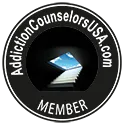Prescription Medication Addiction
Prescription Drugs Commonly Abused that Contribute to Addiction
Xanax
Signs and Symptoms of Prescription Drug Abuse:
According to the National Institute on Drug Abuse, the three classes of prescription drugs that are often abused include:
- Central nervous system (CNS) depressants, such as benzodiazepines (Xanax, Valium, Ativan, Klonopin), used to treat anxiety and sleep disorders
- Opioids used to treat pain
- Stimulants, such as amphetamine and dextroamphetamine (Adderall) or methylphenidate (Concerta, Daytrana, Methylin, Ritalin) used to treat attention deficit disorder and narcolepsy (a sleep disorder).
Amphetamines (Speed)
Simply known as speed, amphetamines are prescribed for conditions such as attention-deficit hyperactivity disorder (ADHD) and narcolepsy where focus and wakefulness are needed to combat symptoms. However, they have been historically misused for their energizing capabilities.
It’s most commonly misused today under the brand name Adderall by those who need to skip on sleep, such as truck drivers, college students working on deadlines, and shift workers.
Codeine
Codeine is often combined with other medications to reduce coughing and pain. This opiate is commonly found in prescription-strength cough syrup. When consumed in high quantities, Codeine-based cough syrup has a sedative effect and can cause altered levels of consciousness.
Demerol & Darvocet
Demerol and Darvocet are commonly abused painkillers. The danger in these, besides the immediate side effects, is that users often develop a tolerance to the drugs’ effects and will increase their dosage. Often, this leads to painful and possibly even violent withdrawal symptoms.
Klonopin & Valium
Klonopin and Valium are often misused for their sedative effects. These “highs” can feel similar to the effects of alcohol, including feelings of drunkenness, talkativeness, and relaxation.
Due to these favorable traits, Klonopin, Valium, and other benzodiazepines can be extremely habit-forming, cause blackouts, and even death by overdose. It is not uncommon for Xanax, Klonopin, and Valium to be taken in conjunction with other drugs.
Oxycodone
Oxycodone, sold commonly as OxyContin and Percocet, is an opioid that changes the way the brain and central nervous system respond to pain. It creates a euphoric, sedative effect.
Often likened to heroin, Oxycodone is prescribed by doctors about six million times a year. Because these pills can cost hundreds of dollars a pill, addicts often have to engage in criminal activities to afford the habit.
Ritalin
Similar to Adderall, Ritalin is a stimulant that affects the central nervous system by increasing levels of dopamine—a hormone that heightens attention—in the brain. As with other stimulants, it can be habit forming.
One reason Ritalin and other ADHD drugs are so commonly abused is their availability. In 2005, doctors prescribed Ritalin and similar drugs more than 29 million times, and that number continues to rise.
Xanax
Xanax (alprazolam) is a benzodiazepine prescribed to treat panic disorder and serious anxiety. It calms a person by depressing his or her abnormal central nervous system. Those without a prescription may abuse the drug for its fast-acting sedating and relaxing effects. The Drug Abuse Warning Network says Xanax is the most abused drug for these reasons.
Signs and Symptoms of Prescription Drug Abuse:
- Stealing, forging or selling prescriptions
- Taking higher doses than prescribed
- Excessive mood swings or hostility
- Increase or decrease in sleep
- Poor decision-making
- Appearing to be high, unusually energetic or revved up, or sedated
- Continually "losing" prescriptions, so more prescriptions must be written
- Seeking prescriptions from more than one doctor
- Frequent requests for refills from physicians
- Losing prescriptions and requesting replacements regularly
- Crushing or breaking pills
- Stealing or borrowing prescription medications from family members, friends, or co-workers
- Consuming prescriptions much faster than indicated
- Visiting multiple doctors for similar conditions
- Inconsistent answers to questions about prescription usage
- Consumption of over-the-counter drugs for the same conditions that a doctor has prescribed other medication
- Ordering prescription medications over the internet
- Noticeable mood swings corresponding to availability or absence of prescription drugs
- More frequent alcohol consumption
If you or a loved one has been experiencing any of the above signs and symptoms, please call
The Personal Growth Center immediately.





